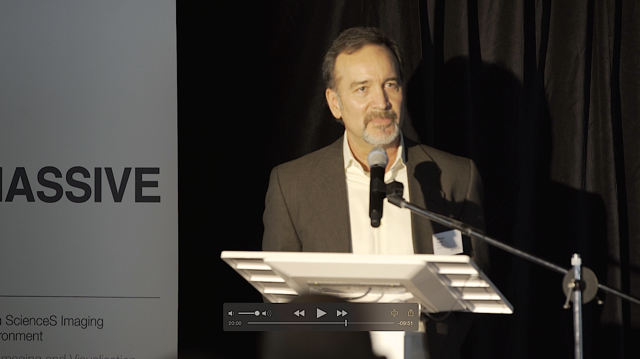NVIDIA Collaborates with Monash University to Advance GPU-Accelerated Research in Australia
 |
| Monash Taps Tesla Accelerated Computing Platform to Drive Discovery in Instrumentation, Robotics and Visualisation, Smart Cities, and More |
NVIDIA announced it is collaborating with Monash University to power a new wave of GPU-accelerated research, marking the first step toward a deeply integrated research and development program between research and industry innovation in Australia.
At a ceremony today at Monash’s Clayton campus in Melbourne, NVIDIA’s Chief Technology Officer of Accelerated Computing, Steve Oberlin, announced that Monash will join the NVIDIA Technology Centre Asia Pacific. The centre is dedicated to driving scientific research and development work in the region.
NVIDIA and Monash will jointly fund research students, facilitate access to GPU-accelerated computing technologies and leverage their worldwide network of experts to provide industry-relevant training and knowledge exchange.
Also announced at the ceremony by the Australian Chief Scientist Alan Finkel AO was the M3 supercomputer, the third-generation supercomputer available through the MASSIVE (Multi-modal Australian ScienceS Imaging and Visualisation Environment) facility. Powered by ultra-high-performance NVIDIA Tesla K80 GPU accelerators, M3 will provide new simulation and real-time data processing capabilities to a wide selection of Australian researchers.
“Monash University has used GPU-accelerated computing to drive discovery in key areas like medicine, robotics, visualisation, mathematics, engineering, and computational chemistry for years,” said Oberlin. “We’re deepening our long-standing relationship with Monash, and look forward to working with them to expand their success using the latest GPU-accelerated computing technologies to drive insight and innovation.”
“Our collaboration with NVIDIA will take Monash research to new heights. By coupling some of Australia’s best researchers with NVIDIA’s accelerated computing technology we’re going to see some incredible impact. Our scientists will produce code that runs faster, but more significantly, their focus on deep learning algorithms will produce outcomes that are smarter,” said Professor Ian Smith, Vice Provost (Research and Research Infrastructure), Monash University.












No comments: